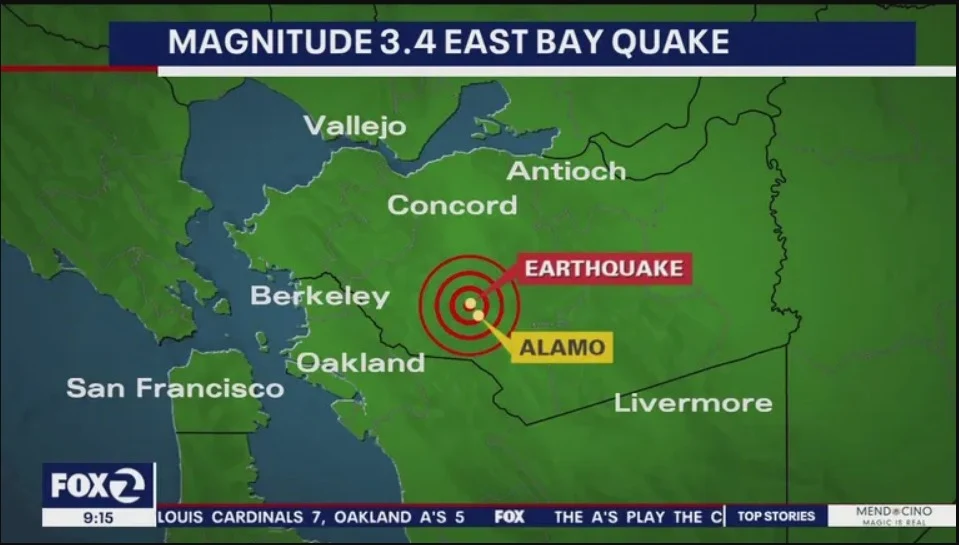A 3.4 magnitude earthquake jolted a portion of the East Bay Tuesday morning, according to data from the U.S. Geological Survey (USGS). The quake was detected just over a mile northwest of Alamo in Contra Costa County, around 7:38 a.m.
The quake was felt by many residents in the East Bay, who reported shaking and rattling of windows and furniture. Some people said they heard a loud boom before the quake.
There were no immediate reports of damage or injuries as a result of the quake, which was relatively shallow at about 6 miles deep.
The East Bay is located near several active faults, including the Hayward Fault, which runs along the western edge of the East Bay Hills. The Hayward Fault is considered one of the most dangerous faults in the country, as it is capable of producing a major earthquake that could affect millions of people and cause extensive damage to buildings and infrastructure.
The USGS estimates that there is a 33 percent chance of a magnitude 6.7 or greater earthquake occurring on the Hayward Fault in the next 30 years.
To prepare for such an event, experts recommend that people have an earthquake emergency kit that includes food, water, and other supplies for at least 72 hours. They also advise people to secure any items that could fall or break during an earthquake, such as bookcases, televisions, and glassware.
During an earthquake, the best thing to do is to drop, cover, and hold on. This means getting down on your hands and knees, taking cover under a sturdy table or desk, and holding on to it until the shaking stops. If there is no shelter nearby, you should get down near an interior wall or next to low-lying furniture that won't fall on you, and cover your head and neck with your arms and hands. You should avoid standing in doorways, running outside, or being near windows or anything that could fall on you.
After an earthquake, you should check yourself and others for injuries, and call 911 if needed. You should also check your home for any damage or gas leaks, and turn off your utilities if necessary. You should stay away from fallen power lines, broken glass, or debris. You should also be prepared for aftershocks, which are smaller earthquakes that follow the main quake and can cause further damage or injuries.
Earthquakes are natural phenomena that cannot be prevented or predicted with certainty. However, by being prepared and following safety tips, you can reduce your risk of harm and cope better with the aftermath of a quake.

-600x600%20px.jpg)

-600x600%20px.jpg)
